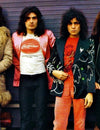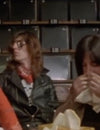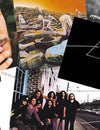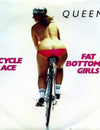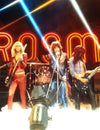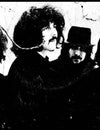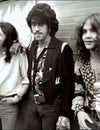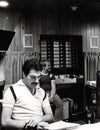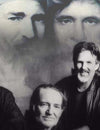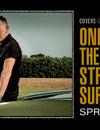
This is Spinal Tap: None More Relevant
The first time I watched “This Is Spinal Tap,” I loved it. The jokes were basic and juvenile enough to resonate with most people in my age group. The musical content danced the line between commercial and edgy and checked all the boxes for a twelve-year-old rock and roll fan. What escaped me were the seemingly endless below-the-surface references to the history of rock music, from backstage to the business and the bands that shaped it. The entire ‘sex, drugs, and rock and roll’ ideal is portrayed in the film, as is the idea of living fast and dying young. Rob Reiner’s heavy-metal mockumentary is given credit for creating the entire genre.
In this article, I’m going to point out some of the more interesting cultural references used in the film.
One Of Britain’s Loudest Bands
The claim to be the UK’s loudest band has been made by many people over the years; rockstars, publicists, fans, and critics. It was a claim to fame, and one made in the film by filmmaker Marty DiBergi - played by director Rob Reiner - when he states that Spinal Tap have “earned themselves a distinguished place in rock history as one of Britan’s loudest bands.”
Bands that were associated with being the loudest in Britain, prior to the film, include: Motorhead - “Everything Louder Than Everyone Else” was their slogan - Iron Maiden, Judas Priest, and Deep Purple.
Tied to the idea of being the loudest band in Britain is the most popular reference from the entire film - the conversation held between Marty DiBergi and Spinal Tap’s lead guitarist Nigel Tufnel, played by Christopher Guest. While looking at the Marshall amp heads that Nigel played, he described how they were different than all the rest:
Nigel: The numbers all go to eleven. Look, right across the board, eleven, eleven, eleven and…
Marty: Oh, I see. And most amps go up to ten?
Nigel: Exactly.
Marty: Does that mean it's louder? Is it any louder?
Nigel: Well, it's one louder, isn't it? It's not ten. You see, most blokes, you know, will be playing at ten. You're on ten here, all the way up, all the way up, all the way up, you're on ten on your guitar. Where can you go from there? Where?
Marty: I don't know.
Nigel: Nowhere. Exactly. What we do is, if we need that extra push over the cliff, you know what we do?
Marty: Put it up to eleven.
Nigel: Eleven. Exactly. One louder.
Marty: Why don't you just make ten louder and make ten be the top number and make that a little louder?
Nigel: (pauses) These go to eleven.
No Love For The Glove
No parody of the music industry would be complete without referencing the politics at play. Bands were expected to cater to the whims of record companies, and record companies to the whims of retailers. Many bands were forced to change song titles, song lyrics, album names, and artwork. The Rolling Stones’ 1968 album, “Beggar’s Banquet,” showed a filthy, public toilet in front of a wall covered in typical dive-bar graffiti, and Decca Records made them change it to a “generic dinner invitation.” The Beatles’ “Yesterday And Today” album was to feature the now infamous “butcher cover,” but retailers refused to sell it, and it was changed. The cover showed a picture of the band seated, all wearing white butcher's coats, covered in raw meat and “dead babies.”
In the movie, the album cover for the band’s upcoming release, “Smell The Glove,” had to be changed, as the record company executives found it sexist. Their representative, Bobbi Flekman, played by Fran Drescher, describes the original album cover, and band manager Ian Faith, played by Tony Hendra, gives a stereotypical response:
Bobbi Flekman: You put a *greased naked woman* on all fours with a dog collar around her neck, and a leash and a man's arm extended out up to here, holding onto the leash, and pushing a black glove in her face to sniff it. You don't find that offensive? You don't find that sexist?
Ian Faith: This is *1982*, Bobbi, c'mon!
Flekman: That's *right*, it's 1982! Get out of the '60s. We don't have this mentality anymore.
Faith: Well, you should have seen the cover they *wanted* to do! It wasn't a glove, believe me.
The production company, Polymer Records, ultimately refused to release the cover after Sears and Kmart said they would refuse to sell it. The album was given a solid black cover instead.
The Legends
Marty asks Nigel and bassist Derek Smalls what happened to Stumpy Joe, the band’s deceased, second drummer:
Marty: And what happened to Stumpy Joe?
Derek: It’s not a very pleasant story. But, uh, he died. He choked on, uh, the official explanation was he choked on vomit.
Nigel: It was, actually. It was actually someone else’s vomit. You know there’s no real…
Derek: Well, they can’t prove whose vomit it was. They don’t have the ability. There’s no way of…
Nigel: You can’t really dust for vomit.
Rock legends Jimi Hendrix, AC/DC frontman Bon Scott, and Led Zeppelin drummer John Bonham all choked to death on their own vomit, and stories persist that the “official stories” of their deaths may not be accurate. The movie dialogue was certainly funny, but this was a very dark joke if you looked under the surface layer of it.
Frank Sinatra’s mob ties were hinted at by limo driver Tommy Pischedda, played by Bruno Kirby, in a scene where he was talking with the band about reading Sammy Davis Jr’s new book. It’s no secret that Sinatra was wrapped up in the mob; to what degree is still largely debated, however.
Tommy Pischedda: You know what the title of that book should be? "Yes, I Can If Frank Sinatra Says It's OK". 'Cause Frank calls the shots for all of those guys. Did you get to the part yet where, uh... Sammy is coming out of the Copa... it's about 3 o'clock in the morning, and, uh, he sees Frank? Frank's walking down Broadway by himself...
*Nigel puts up the partition*
Pischedda: Fuckin' limeys.
Marty DiBergi: Well, you know, they're not, uh, used to that world.
Pischedda: Yeah, yeah.
DiBergi: You know, Frank Sinatra, it's a different world that they're in.
The song “Big Bottom” could certainly be seen as an homage to Queen’s “Fat Bottomed Girls.” The lyric, “..my love gun's loaded and she's in my sights / big game is waiting there inside her tights,” is referencing the KISS song, “Love Gun.” In the film, Nigel explains that it’s about the bass: “Historically, people love hearing low sounds. Whales, orangutan, various creatures of the night - they all love a low sound.”
On the recording, guitarists David St. Hubbins, played by Michael McKean, and Nigel play bass, and bassist Derek Smalls plays a double-neck bass, leaving just drums and keyboards for treble. When Nigel left the band, they had the keyboard player double up his bass pedal to perform the song live.

Classic Lore
The band decides to incorporate a lavish stage show, that features a Stonehenge megalith. Nigel sketches the prop on a napkin, labeling it as eighteen inches, not eighteen feet. The tiny props embarrass the band. Black Sabbath experienced the inverse by ordering a fifteen-meter-high Stonehenge, instead of a fifteen-foot one, making it too large to use in any venue.
In the film, Ian is blamed for not knowing better regarding the Stonehenge measurements, and David suggests his girlfriend Jeanine Pettibone, played by June Chadwick, should co-manage the group. This causes Ian to quit, and Nigel becomes marginalized. The band plays smaller and smaller venues as the tour continues.
Adding women to the mix is standard fare for many band breakup stories. Three famous examples are John Lennon leaving the Beatles, Clapton and Harrison’s parting ways from Derek & The Dominos, and Lindsey Buckingham leaving Fleetwood Mac because of Stevie Nicks.
Self-Indulgence
Nigel was not a fan of jazz: “Jazz is just a series of mistakes without the ‘oops’...I don't understand it. They use this bizarre tone on their guitars; it's like it's under a tub of water. It's like plup-plup-plup-plup-plup, like a little motorboat. But I think that's because they're old people, and they don't like the noise. And, of course, they play soft, so you can't hear them. Then they go, ‘Yeah, I'm a great player.’ ‘Sure, mate. I've gotta take your word for it.’ With me, I play loud. My manhood is right on the table. Examine it, pick it up, if you will."
Zakk Wylde’s Black Label Society played a ‘Jazz Odyssey’ during their European Doom Trooping Concert in 2006. Zakk has always enjoyed extended, self-indulgent solos on stage, as many guitar heroes have.
“This is Spinal Tap” is an all-time classic that can be rewatched over and over and stays fresh because it rings so true to musicians, fans, and critics alike. Luckily for everyone, their are plans to release a new Spinal Tap film in 2024 to commemorate the forty-year anniversary of the original.









